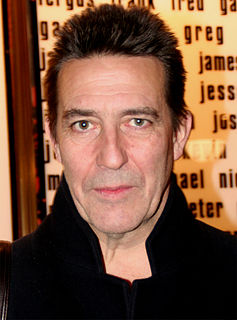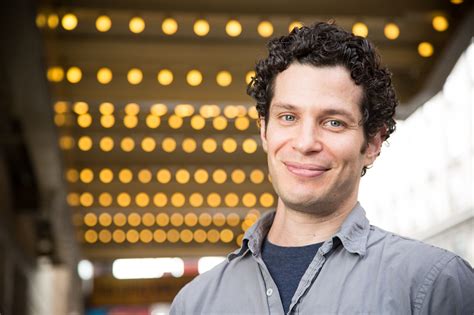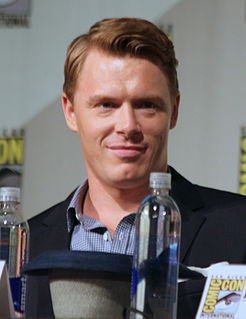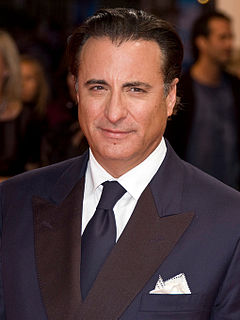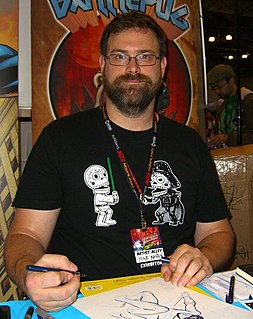A Quote by Ciaran Hinds
You try to work with the director and your fellow actors to get somewhere, but other people are the judge of whether you hit that note right.
Related Quotes
I aspire to be an instrument of the director. I'm happiest like that. The stronger the director, the more I'm willing to give them. It's not just about admiration for their films, it's how they deal with you, and whether they get you or the way you work. If they don't, you better adjust your way of working to suit them. I want to work with people who are good at what they do, and people who are passionate. As you get older, you suffer fools less easily. That's why there's all those cranky character actors. I'm an exception. I'm a sweetheart.
One of the challenges of being a director is often you don't get to work with your peers. You know, writers can write together, and as a director you get to work with so many wonderful actors and writers and designers. But it's pretty rare that you get a chance to partner in that way with another director.
My job as an actor is to try to do what the director wants me to do. I'm going to do everything I can to incorporate that note and make it work. If it doesn't work, I'll try this kind of thing, and "How do you feel about that?" If you are at odds with the director, neither one of you is going to get anywhere. You really do have to be able to make both of you happy. Even when I was younger, there were times when you have to find a way to make it work for both of you.
When auditioning, I try to imagine that I'm the only person that they [directors] are seeing that day because it can be overwhelming, in the same sense that it could be overwhelming if you try to fulfil everyone's expectations rather than the people closest to you in the creative process, be it your director, or fellow actors and the writers. So, that's kind of it - I try to trick myself into believing that no one has ever gone there before.
Actors, I think, are all the same. Both Korean actors and American actors are all very sensitive people, and they are all curious to know what the director thinks of them and how they are evaluated, and they try to satisfy the director. And they like it if you listen carefully to their opinions and accept them.
To finish first you have to first finish. Don't get in a position where you go back to go. What's interesting is that some guy whose grandfather was a lawyer and a judge-hurriedly going to Harvard Law with a wave of veterans-I was willing to go into so many different businesses. I was constantly going right into the other fellow's business and doing better than the other fellow did. The reason it was possible? Self-education- developing mental discipline, big ideas that really work.
Your job, as an actor, is never to just do what you're told. That's boring, and life is too short. It's your job to bring something, and it will either be to other people's taste or your own taste, and you have to try things out. Actors say, "Well, as long as the director's happy," but I don't believe that and I don't agree with that. I want the director to be happy, but if I'm not happy, I won't sleep at night.
In terms of how I work with actors, having worked so heavily on the script I have a very clear idea of the characters; they are reasonably well illustrated in the script. If you cast it right, to a great degree you can hand it over to the actor and I just make suggestions. I'm not the kind of director who needs or wants to get into too much finessing. Ideally, when you hit the set, you have this conversation, like, 'eh, what did you think?' 'I don't know, what did you think?' 'Why don't we just try it again, make a few physical changes.'
